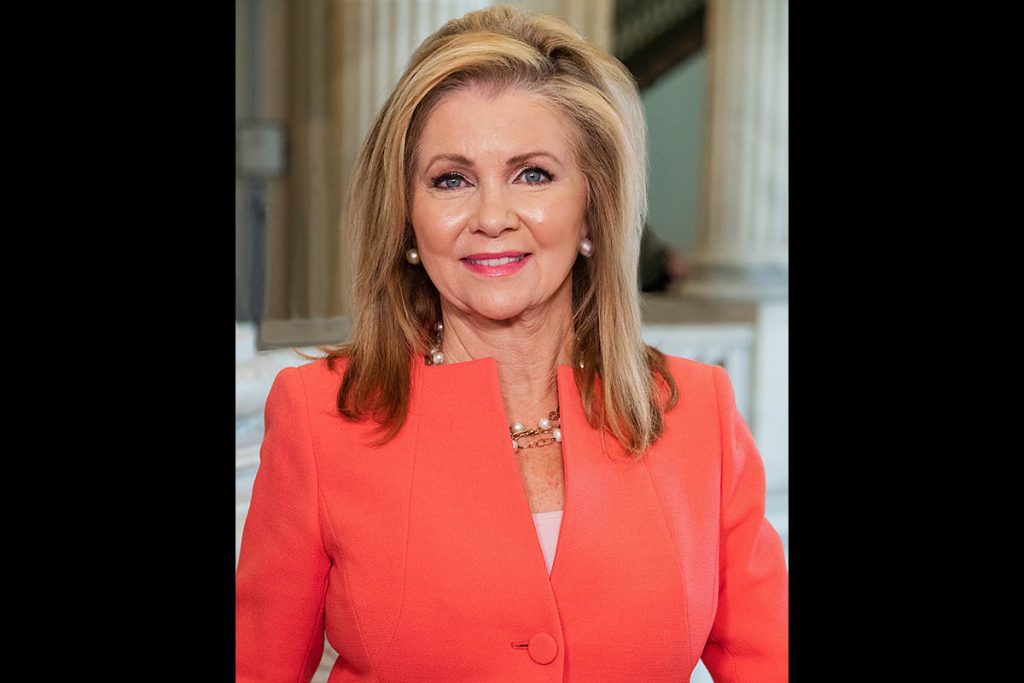U.S. Senators Marsha Blackburn (R-Tenn.) and Amy Klobuchar (D-Minn.) have introduced the National Human Trafficking Database Act in Washington, D.C. This act would create a national human trafficking database at the Federal Bureau of Investigation (FBI) and encourage state law enforcement agencies to provide data.
Belmont University’s Data Collaborative and anti-human trafficking organization Engage Together have successfully implemented a state-level data collection program in Tennessee. To further combat the heinous crime of human trafficking, Congress should take inspiration from Tennessee and establish a national database dedicated to human trafficking data. This would be a significant milestone in the fight against human trafficking.
Senator Blackburn emphasized the need for the federal government to utilize all possible means to bring to justice those involved in human trafficking, a crime that has seen a significant increase in prosecutions in recent years. She stated that the National Human Trafficking Database Act will aid in the fight against this abhorrent act by encouraging states to identify the potential risks of human trafficking in their respective counties and keep track of the number of prosecutions taking place at the statewide level.
Senator Klobuchar emphasized the importance of preventing human trafficking and stressed the need to utilize the best available data and tools. The bipartisan bill proposes the establishment of a national database to address critical information gaps, foster collaboration among anti-trafficking efforts, and ultimately save lives.
Background
This Article Includes
The U.S. Department of Homeland Security (DHS) played a vital role in supporting 765 victims of human trafficking and executing 3,655 arrests related to this crime in 2022. To combat human smuggling, the DHS has allocated a budget of over $60 million and sent a team of over 1,300 experts to the southwest border and Latin America. These efforts demonstrate the DHS’s commitment to fighting against human trafficking and providing support to those who have been victimized by this heinous crime.
Collecting data on human trafficking within their state and sharing it with the federal government is crucial for states.
The Stopping the Abuse, Victimization, and Exploitation of Girls (“SAVE Girls”) Act, introduced by Senators Blackburn and Klobuchar, aims to equip states, local governments, and non-profit organizations with the necessary resources to combat the trafficking of young girls and women. Its implementation will aid in putting an end to this heinous crime and provide much-needed support to victims.
The National Human Trafficking Database Act
Under the proposed National Human Trafficking Database Act, the FBI would create a nationwide database to track incidents of human trafficking. Additionally, the act would encourage specific state law enforcement agencies to submit data related to human trafficking to the database. This information would help authorities better understand the scope of the issue and develop targeted strategies to combat human trafficking.
-
- The human trafficking risk assessment index score—which indicates the presence and prevalence of trafficking—for every county in every state;
- The names of all anti-trafficking organizations operating in each county and
- The total number of state-level human trafficking prosecutions collected in coordination with local District Attorneys’ offices.
The proposed bill aims to encourage the submission of data by directing the U.S. Department of Justice’s Office for Victims of Crime to grant $50 million per fiscal year to states for the purpose of collecting and submitting data.
Endorsements
Several organizations have endorsed the National Human Trafficking Database Act, including Raven, Street Grace, Hope for Justice, Engage Together, Shared Hope International, National Child Protection Task Force, Lynn’s Warriors, Thistle Farms, Restore Corp by Freed Life, Ancora TN, 3Strands Global Foundation, and the Fraternal Order of Police.
Click here for bill text.
